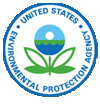
EPA Takes Action against Companies that Sell and Import Illegal Pesticides
The U.S. Environmental Protection Agency has issued legal complaints against two companies, the Daifuku Trading Corp. of Englewood, New Jersey and the Everyday Group of Brooklyn, New York, for selling unregistered pesticides. Both companies face penalties for violating federal pesticides law. Daifuku faces additional fines for making false and misleading statements on one of its pesticide products, for not properly labeling six products and for the improper importation of pesticide products. Under federal law, products used to kill pests must be registered with the EPA and contain labels written in English with instructions on their proper use.
"When stores sell illegal pesticides, the health and safety of people are put at risk," said EPA Regional Administrator Judith A. Enck. "Unless pesticide products are registered with the EPA and have the required EPA labels, they should not be sold. Store owners should protect the health of their customers and remove any unregistered pesticides from their shelves immediately."
EPA inspections of the Daifuku Trading Corp.'s stores in Flushing, New York and Englewood, New Jersey revealed that the company was selling unregistered and misbranded pesticide products, including insect repellents, laundry detergents and disinfectants. In addition, Daifuku failed to notify the EPA it was importing pesticide products into the U.S., also a violation of federal pesticide law.
EPA inspections of the Everyday Group's Brooklyn offices and a Kearny, New Jersey warehouse revealed the company was selling pesticide products that had not been registered with the EPA to stores throughout the New York City area. Among the products were mothballs imported from China that could be easily mistaken for candy. This product, called Fuji Lavender Moth Tablets, contained an active ingredient called para-dichlorobenzene, which is a toxic chemical.
Pesticides have been linked to various forms of illnesses in people, ranging from skin and eye irritation to cancer. Some pesticides may also affect the hormone or endocrine systems. In many situations, there are non-chemical methods that will effectively control pests. The EPA recommends the use of alternative methods as part of an overall pest management strategy.
Before a pesticide product is registered, the producer of the product must provide data from tests conducted according to EPA guidelines to ensure that the product will not be harmful to people's health. The EPA examines the ingredients and the way in which the product will be used, and assesses a wide variety of potential human health and environmental effects associated with its use. Distributors and retailers are responsible for ensuring that all pesticides distributed and sold fully comply with the law.
Federal pesticides law additionally requires the filing of a "Notice of Arrival" prior to the arrival of all imported pesticides into the United States. Companies must submit detailed information on the Notice of Arrival form to allow the EPA to determine if the pesticide is approved for use in the United States or meets one of the few allowable exemptions. Products not registered with the EPA for use in the United States are denied entry and destroyed by U.S. Customs and Border Protection, or immediately exported back to their country of origin under Customs supervision.
In separate actions, the EPA recently reached penalty agreements with three companies for previous violations of pesticide regulations. In September 2011, Man Li Trading was found to have violations at its store in Brooklyn and Hong Kong Supermarket had violations at its stores in Brooklyn and Manhattan. In March 2012, NJ Cash and Carry was found to have violations at its store in Clifton, New Jersey.
During 2011 and 2012, EPA Region 2 conducted over 250 inspections of retail outlets, and pesticide distributors and importers in New Jersey and New York, removing over 20,000 units of illegal pesticides in the process.
